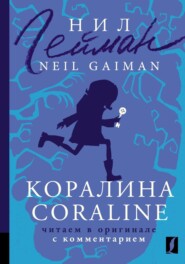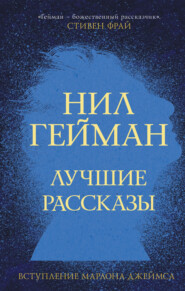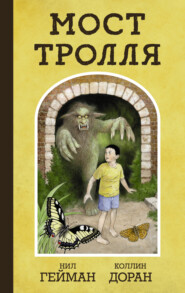По всем вопросам обращайтесь на: info@litportal.ru
(©) 2003-2025.
✖
The Complete Interworld Trilogy: Interworld; The Silver Dream; Eternity’s Wheel
Настройки чтения
Размер шрифта
Высота строк
Поля
He looked at his clipboard and pursed his lips. The bedside telephone beeped, and he answered it. “Yes,” he said. “He seems fine.… My dear woman, he’s a teenage boy. They’re practically indestructible. Don’t worry. Sure, come and pick him up in an hour or so.” He put the phone down. “That was your mother,” he told me. He made a note on my chart.
“Well,” he said then, “maybe your memory will come back. And maybe you’ll have thirty-six hours of your life lost forever. No way to tell right now.
“You’re looking leaner than I remember you,” he added. “Is there anything worrying you? Anything you need to talk about?”
“I keep thinking I lost something,” I said. “But I don’t know what.”
Some people thought I was faking. I heard one story in school about how I’d hitchhiked all the way to Chicago, which was kind of disturbing—I mean, for all I know I might have hitchhiked to Chicago. Or gone even farther.
They did a segment on the local eleven o’clock news, with interviews with Mayor Haenkle, and the chief of police and with an old guy who demonstrated with models that I’d been taken off in a flying saucer.
Dimas didn’t lose his job. It turned out that each of the cards he’d given us before we set off had had a tracker chip built into it. So he knew where each of us had been all the time.
Except for me, of course. My little red blip had gone from the screen on his laptop (he was cruising around in his Jeep, making sure none of us got on buses or called home for rides). And it never turned up again. That was one of the things that the saucer guy pointed to as evidence that I had been taken into space.
Ted Russell thought it was hilarious. He started calling me “saucer boy” and “space captain” and “Obi-Wan Harker” and things like that whenever he saw me. I did my best to ignore him.
I grew kind of popular, but it was the way a bear in a cage would have been popular. Some kids wanted to be my new best friends, and some stared and pointed from across the lunchroom.
Rowena Danvers came up to me after math, later that first week. “So, where did you go that day?” she asked. “Was it a flying saucer? Or did you go to Chicago? Or what?”
“I don’t know,” I told her.
“You can tell me. I was the one who waited for you on that stupid street corner for half an hour, after all. I won’t tell anyone.”
“I don’t know,” I told her. “I wish I did.”
Her eyes flashed angrily. “Fine, if that’s how you feel. I thought we were friends. You don’t have to trust me if you don’t want to. I don’t care about you anyway.” And she stomped away, and all I could think was I know what you’d look like with your hair cut really, really short. And then I wondered why I’d thought that.
One day—it was a couple of days after the local news piece aired—Ted Russell went too far. I think he hated all the attention I was getting. Or maybe he was just as mean as a skunk with a toothache, and he hadn’t done anything nasty recently.
Either way, between periods, he came over to me from behind and took me by surprise, knuckling me hard in the kidney.
It all happened kind of fast, then.
I dropped my center of gravity by bending my legs slightly, took a step back and slid my other foot over into a modified cat stance (and don’t ask me how I knew it was called that). I grabbed his wrist, bent it in one of the few ways wrists were not designed to bend, pulled him over and brought the edge of my other hand down on the back of his neck. In just over a second Ted had gone from causing me pain to writhing on the ground in agony at my feet. I shut off the autopilot that had taken over just in time to keep from performing the last movement in the sequence, which I knew (again, don’t ask me how), would have resulted in a very dead Ted.
He got to his feet and stared at me as if I’d sprouted green tentacles. Then he ran from the room, which was good, as I was completely frozen. I didn’t know what I’d done. I didn’t know how I’d done it. It was as if the muscles had known what to do and didn’t need me.
I was just glad that no one else had seen it. Things went on like that for about two weeks.
“You ought to be kidnapped by aliens more often,” said my dad one evening over dinner.
“Why?”
“Straight A’s, for the first time in human memory. I’m impressed.”
“Oh.” Somehow it didn’t seem that cool. Schoolwork was pretty simple now: It was as if I knew how hard it could be and what I was capable of doing. I felt like a Porsche that had learned it wasn’t a bicycle anymore but was still taking part in bicycle races.
“What does ‘Oh’ mean?” Mom picked up on that immediately.
“Well.” I gestured with a stalk of broccoli. If you wave it around enough, sometimes they don’t notice you’re not eating it. “It’s just math and English and Spanish and stuff. It’s not like it’s hyperdimensional geometry or something.”
“Not like it’s what?”
I thought about what I’d just said. “Dunno. Sorry.”
Most of the time I forgot about my thirty-six-hour loss. But when I fell asleep at night and, sometimes, when I woke up in the morning, I could feel it at the back of my head. It itched. It tickled. It pricked and it tingled. I felt like I was missing a limb in my head; as if an eye that had opened had closed forever.
I was fine, unless I was lying in the dark. And then it really hurt. I’d lost something huge and important. I just didn’t know what.
“Joey?” said Mom. Then she said, “You’re getting too big to be Joey. I suppose you’ll be Joe, soon.”
My upper arms shivered with goose pimples. It was there, again. Whatever it was. “Yeah, Mom?”
“Could you take care of your brother for a few hours? Your father and I are going to visit my gemstone supplier. There’s a semiprecious stone from Finland I’ve never heard of he says would be perfect for me.”
Did I mention my mom designs and makes jewelry? It was a kind of hobby that got a bit out of control, and it had paid for the extension on the house.
“Sure,” I said. The squid is a cool little kid. He’s actually kind of fun for an eighteen-month-old. He doesn’t whine (much) and he doesn’t cry unless he’s tired, and he doesn’t follow me around too much. And he always seems pleased when I play with him.
I went up to his room in the annex. Every time I walked up those stairs I found myself wondering if the nursery was going to still be there this time.
It’s like those weird paranoid thoughts that go through your head when there’s not enough going on, like when you’re in the bus on the way home from school and you wonder if maybe your parents moved away without telling you. You must have had them, too. I can’t be the only one.
“Hey, squidly,” I said. “I’m going to be looking after you for a couple of hours. You got anything you want to do?”
“Bubbles,” he said. Only he said it more like “Bub-bells.”
“Squid, it’s the beginning of December. Nobody blows bubbles in this weather.”
“Bub-bells,” said the squid sadly. His real name is Kevin. He looked so dejected.
“Will you wear a coat?” I asked. “And your mittens?”
“Okay,” he said. So I went down to the kitchen and made a bucket of bubble mixture, using liquid dishwashing soap, a jigger of glycerin and a dash of cooking oil. Then we put our coats on and went into the yard.
The squid has a couple of giant plastic bubble-blowing wands, most of which he hadn’t used since September, which meant that I had to find them, and then I had to wash them, as they were caked with mud. By the time we were ready to start blowing bubbles, it was snowing gently, big flakes that spun down from the gray sky.
“Hee,” said the squid. “Bub-bells. Ho.”
So I dipped the bubble wand into the bucket, and I waved it in the air; and huge multicolored soap bubbles came out from the plastic circle and floated off into the air; and the squid made happy noises which weren’t quite words and weren’t quite not; and the snowflakes touched the bubbles and popped the little ones, and sometimes the flakes landed on the bigger bubbles and slid down the sides of them; and every soap bubble as it floated away made me think of …
… something …
It was driving me crazy that I couldn’t quite tell what.
And then the squid laughed and pointed at a bobbing bubble and said, “Hyoo!”

















